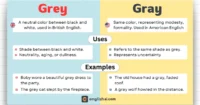What is an Intensive Pronouns? Learn with Examples & Uses
Published: 25 Oct 2024
Imagine you’ve worked hard on something and want everyone to know you did it—intensive pronouns are perfect for that! These words, like myself or himself, let you proudly show who’s responsible. When you say, “I baked the cake myself,” it is just a sentence; it’s your moment of pride, showing that you put in all the effort. Isn’t that amazing?
In this guide, we’ll uncover one type of pronoun, which is intensive pronouns, how they can highlight those moments of achievement, and see how they work with examples.
Let’s dive in and become grammar champions together!
What is an Intensive Pronoun?

An intensive pronoun (sometimes called an emphatic pronoun) is a unique word that helps make something important stand out. For example, if you say, “The superhero himself saved the day,” it shows just how amazing that superhero is! It emphasizes that it was he—and not anyone else—who did the heroic act.
In English, intensive pronouns look just like reflexive pronouns; they both end in -self or -selves. But they work differently! For example, when you say, “I did it myself,” you’re saying that you accomplished something all on your own, and that’s something to be proud of! Each personal pronoun has its own intensive form, like myself, yourself, and herself, and even for the impersonal pronoun “one,” you can say “one’s self.”
Examples of Intensive Pronouns
| Person | Type | Intensive Pronoun | Example Sentence |
| First Person | Singular | myself | I completed the project myself. |
| Plural | ourselves | We cooked the dinner ourselves. | |
| Second Person | Singular | yourself | You can solve the puzzle yourself! |
| Plural | yourselves | You all finished the race yourselves. | |
| Third Person | Masculine Singular | himself | He wrote the book himself. |
| Feminine Singular | herself | She painted the picture herself. | |
| Neuter Singular | itself | The cat groomed itself. | |
| Gender Neutral Singular | themself | They prepared for the test themself. | |
| Plural | themselves | The students presented their projects themselves. |
How to Use Intensive Pronouns In Sentences
An intensive pronoun is a word that adds extra emphasis to a noun or another pronoun. It never stands alone; it’s always used with another word to give it more strength or importance.
For incorrect and correct use:
- ❌ “Myself completed the assignment.” (This is wrong.)
- ✅ “I myself completed the assignment.” (This is correct! “Myself” emphasizes I.)
Another example:
- ❌ “Why don’t you talk to herself?” (This is wrong.)
- ✅ “Why don’t you talk to the teacher herself?” This is correct because “herself” puts extra focus on the teacher.
Where do we put the intensive pronoun?
Most of the time, the intensive pronoun comes right after the noun or pronoun. This is like giving it a big high-five! But sometimes, it can come later in the sentence to change the focus of the emphasis.
Let’s see how this works:
- “They themselves solved the problem!” (This emphasizes they.)
- “They solved the problem themselves!” (This shows that they achieved it on their own.)
The intensive pronoun can sometimes come before the noun, separated by a comma. This is less common and might feel a bit fancy.
- “Myself, I wouldn’t eat that, but it’s up to you.” (It means, “I personally wouldn’t eat that.”)
Now, doesn’t that make the idea more straightforward? It’s like putting extra excitement into the sentence!
Difference Between Intensive Pronouns and Reflexive Pronouns
Intensive and reflexive pronouns use the exact words, but their job in the sentence differs. Let’s break it down:
- Intensive Pronoun: This pronoun adds extra emphasis to a noun or pronoun. If you take the intensive pronoun out, the sentence still makes sense without extra emphasis.
- Reflexive Pronoun: This pronoun is used when the subject and object of the sentence are the same person or thing. Here, the reflexive pronoun is necessary for the sentence to make sense.
Examples: Intensive vs. Reflexive Pronouns
Intensive:
- “She herself cooked the entire meal.”
(Without “herself,” the sentence still works: “She cooked the entire meal.”)
Reflexive:
- “Be careful not to hurt yourself.“
(Without “yourself,” the sentence doesn’t work: “Be careful not to hurt” is incomplete.)
Another set of examples:
Intensive:
- “The dog itself found its way home.”
(Without “itself,” the sentence still makes sense: “The dog found its way home.”)
Reflexive:
- “He taught himself how to play guitar.”
(Without “himself,” the sentence is incomplete: “He taught how to play guitar” doesn’t make sense.)
Check Your Knowledge
Now it’s your turn: find the intensive pronoun in each sentence.
- The teacher herself graded all the papers over the weekend.
- We built the treehouse ourselves to enjoy summer in the backyard.
- The director himself approved the final version of the movie.
- You should ask your sister herself for advice on the project.
- The kids themselves cleaned up the playground after the party.
- I painted the fence myself, and it took all day!
- The mayor herself attended the opening ceremony of the new park.
- They completed the marathon themselves without any assistance.
- I will bake the cookies myself for the school event.
- The scientist herself made a groundbreaking discovery
You probably got them all right! Let’s go over the answers together.
- The teacher herself graded all the papers over the weekend.
- We built the treehouse ourselves to enjoy summer in the backyard.
- The director himself approved the final version of the movie.
- You should ask your sister herself for advice on the project.
- The kids themselves cleaned up the playground after the party.
- I painted the fence myself, and it took all day!
- The mayor herself attended the opening ceremony of the new park.
- They completed the marathon themselves, without any assistance.
- I will bake the cookies myself for the school event.
- The scientist herself made a groundbreaking discovery.
Conclusion
Intensive pronouns are potent tools in the English language that allow us to emphasize our accomplishments and highlight the importance of specific actions. By understanding how to use intensive pronouns effectively, you can add depth to your sentences, making your writing more expressive and engaging.
Intensive pronouns like myself, yourself, himself, and herself draw attention to the subject, showcasing individual effort and pride in achievements. While they look similar to reflexive pronouns, their unique function is crucial in conveying meaning.
You can now identify and use intensive pronouns confidently with the examples and guidelines provided in this guide. Whether in writing or speaking, these pronouns can elevate your language skills, allowing you to share your thoughts and feelings more emphatically.
So embrace the magic of intensive pronouns and let your language shine! Keep practicing, and soon you’ll be a grammar champion, using these powerful words to make your statements stand out!
FAQs
What is an intensive pronoun?
An intensive pronoun emphasizes a noun or pronoun, highlighting responsibility for an action (e.g., myself, yourself, himself).
How do intensive pronouns differ from reflexive pronouns?
Intensive pronouns add emphasis and can be removed without changing the sentence’s meaning, while reflexive pronouns are necessary when the subject and object are the same.
Can you provide examples?
- I baked the cake myself. (Intensive)
- You should take care of yourself. (Reflexive)
Where do I place an intensive pronoun?
Typically, right after the noun/pronoun it emphasizes, or later in the sentence for added focus (e.g., She solved it herself).
Can I start a sentence with an intensive pronoun?
Yes, but it’s less common. For example Myself, I think it’s a great idea.

- Be Respectful
- Stay Relevant
- Stay Positive
- True Feedback
- Encourage Discussion
- Avoid Spamming
- No Fake News
- Don't Copy-Paste
- No Personal Attacks



- Be Respectful
- Stay Relevant
- Stay Positive
- True Feedback
- Encourage Discussion
- Avoid Spamming
- No Fake News
- Don't Copy-Paste
- No Personal Attacks





